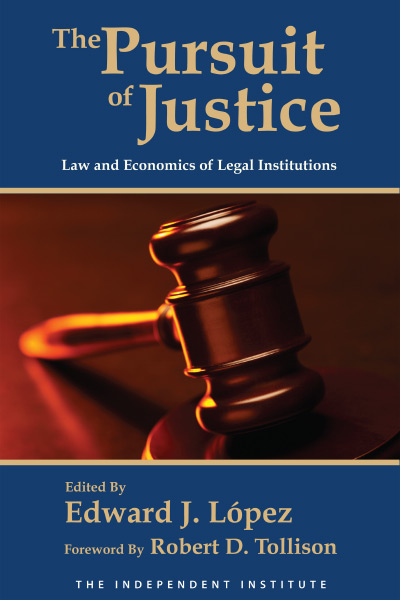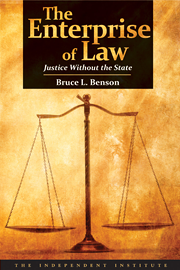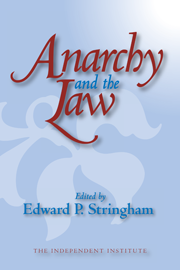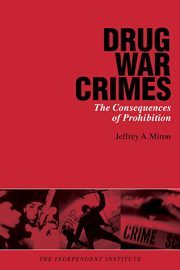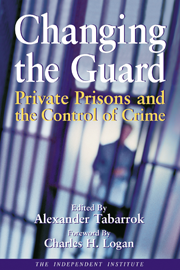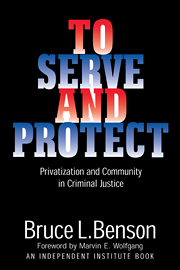| List Price: | ||
| Price: | $25.50 | |
| Discount: | $4.50 (Save 15%) |
| Formats |
Paperback |
Hardcover |
| List Price: | ||
| Price: | $25.50 | |
| Discount: | $4.50 (Save 15%) |
| Formats |
Paperback |
Hardcover |
Overview
The Pursuit of Justice is a thoroughgoing analysis of the bureaucratization and politicization of the U.S. legal system and how the law works in practice rather than in theory. The book looks specifically at how decision makers in the law—judges, lawyers, juries, police, forensic experts, and more—respond to economic incentive structures. Faulty incentives lie at the heart of numerous failures of the U.S. legal system, but rather than the romanticized version of the law as portrayed in television dramas and in much academic research, the authors portray the legal system as it actually performs in practice.
This realism, in turn, provides the basis for reform proposals in a host of areas—from fingerprinting to criminal sentencing, from lawyer licensing to judicial selection, and from eminent domain to wealth transfers via class-action lawsuits. By looking at a range of important legal rules, their associated incentive effects, and the resultant outcomes, the authors here shed light on how perverse incentives result in the adverse outcomes of government failure, while also suggesting institutional reforms that would create a more just and efficient legal system.
Contents
1. An Introduction to the Pursuit of Justice
Edward J. López
2. The Rise of Government Law Enforcement in England
Nicholas A. Curott and Edward P. Stringham
3. Electoral Pressures and the Legal System: Friends or Foes?
Russell S. Sobel, Matt E. Ryan, and Joshua C. Hall
4. Romancing Forensics: Legal Failure in Forensic Science Administration
Roger G. Koppl
5. Judicial Checks on Corruption
Adriana S. Cordis
6. Effects of Judicial Selection on Criminal Sentencing
Aleksandar Tomic and Jahn K. Hakes
7. Economic Development Takings as Government Failure
Ilya Somin
8. On the Impossibility of “Just Compensation” When Property is Taken: An Ethical and Epistemic Inquiry
John Brätland
9. The Lawyer-Judge Hypothesis
Benjamin H. Barton
10. Class Action Rent Extraction: Theory and Evidence of Legal Extortion
Jeffrey Haymond
11. Cy Pres and its Predators
Charles N. W. Keckler
12. Licensing Lawyers: Failure in the Provision of Legal Services
Adam B. Summers
Detailed Summary
- Public opinion polls consistently show a lack of confidence in the American legal system. A leading source of this dissatisfaction is the waste and injustice fostered by perverse incentives that operate throughout the legal system. The Pursuit of Justice examines this problem and proposes reforms to help align incentives with the public interest.
- America has become a “nation of jailers.” With 2.3 million people behind bars and another 5.1 million people on parole or probation, a staggering one in 31 adults in the United States is “in the system.” Although many pundits blame the war on drugs, the deeper problem is bad incentives in criminal law. Judges succumb to political and fiscal pressures when convicting and sentencing defendants. Voters treat the legal system as if it were costless, pushing it to the limits of capacity. Prosecutors go after riskier cases around election time. Forensics experts work in jurisdictional monopolies that hold them unaccountable for sloppy DNA and fingerprint testing. The result is prison overcrowding, wrongful convictions, and diminished confidence in the public prosecution of crimes.
- Mistakes in fingerprint analysis cause up to 4,762 wrongful felony convictions each year in the United States. Making the fingerprint experts, the police, and prosecutors work more independently of each other would slash wrongful-conviction rates and save tens of millions of dollars. Triplicate fingerprint examinations in felony cases would cost about $9 million annually, but it would save U.S. taxpayers more than $61 million per year in direct expenditures on incarceration by eliminating over 98 percent of the false felony convictions that result from errors in fingerprint analysis.
- Consumers suffer from the lack of market competition for legal services. Regulations, licensure requirements, and unlawful practice of law statutes protect lawyers from competition and make it illegal for non-attorneys to provide legal services. Judges tend to rule in favor of lawyers’ interests. This enables the legal profession to enjoy unique anti-competitive protections such as advertising restrictions and self-control of entry. As with other professions, greater competition in legal services would help to modernize the industry while improving access for consumers.
- Making judges more independent of political influences may reduce government corruption in the legislative and executive branches. Corruption convictions are less common in U.S. states where judges have greater independence (as measured by judge pay, judicial selection methods, and term length) and where the state constitution requires a larger majority to propose an amendment.
- Elected judges are more likely to incarcerate a defendant, whereas appointed judges tend to pass longer sentences. The differences can be explained by incentives. Elected judges have incentives to be perceived by voters as “tough on crime,” and they can pass the costs of crime deterrence to taxpayers across the state. Appointed judges, however, answer to state-level appointing bodies (i.e., the governor or state legislature), which can pressure judges to decrease the number of short-term incarcerations. This reduces prison-population pressures and produces longer average sentences. Also, it frees up funds for other uses while still enabling the appointing body to appear “tough on crime.”
Judges, lawyers, juries, police, forensic experts, and others who work in the legal system respond to incentives. As in business and politics, incentives shape the outcomes of the legal system: they can either support the pursuit of justice—or they can undermine it, leading to wrongful convictions, frivolous lawsuits, higher attorney fees, restricted access to the courts, political interference, and government corruption. To improve our legal system significantly we must therefore first seek to understand precisely how our institutions structure the incentives that decision-makers face.
The Pursuit of Justice: Law and Economics of Legal Institutions, edited by Edward L. López, does exactly that. It shows why faulty incentives lie at the heart of numerous failures of the U.S. legal system. Rather than the romanticized version of the law as portrayed in television dramas and in much academic research, it portrays the legal system as it actually performs in practice. This realism, in turn, provides the basis for reform proposals in a host of areas—from fingerprinting to criminal sentencing, from lawyer licensing to judicial selection, and from eminent domain to wealth transfers via class-action lawsuits.
“The Pursuit of Justice is a realistic yet hopeful study of legal institutions, which as a whole provides a rigorous analysis of an array of topics and argues for reform of currently socially wasteful aspects of the law,” López writes in the book’s introductory chapter.
The book’s strength comes in part from the inspiration and analytical toolkit provided by public choice theory, traditionally the economic study of politics, as Robert D. Tollison explains in his foreword to the book. “As the original generation of public choice and law and economics scholars fade into the history of economic thought, a new generation steps up to carry on, defend, and extend the hard-earned intellectual gains,” writes Tollison. “That is why reading The Pursuit of Justice is such a refreshing intellectual experience.”
With chapters written by economists and law professors, The Pursuit of Justice offers a wealth of cross-disciplinary insights to help us understand—and improve—the performance of the U.S. legal system. The book covers five broad topics: the capture of the law by private interests, judicial selection methods, forensic science administration, eminent domain, and the law as a means of wealth redistribution.
Private Interests and the Law
Too often the law is driven to serve particular narrow interests instead of the public interest. This is hardly a new trend, as the history of Anglo-American legal institutions demonstrates. For example, in their chapter “The Rise of Law Enforcement in England,” Nicholas A. Curott and Edward P. Stringham show that the fiscal demands of kings in medieval England played a leading role in the gradual centralization of the legal institutions of that era.
Lawyers and judges have also been the intended beneficiaries of changes to the legal system. In “The Lawyer-Judge Hypothesis,” Benjamin H. Barton examines a series of twentieth-century court rulings that tilted laws governing the legal profession in their favor.
Similarly, in his chapter “Licensing Lawyers: Failure in the Provision of Legal Services,” Adam B. Summers shows how the regulation of the supply of legal services has protected lawyers from competition but has harmed consumers by raising attorney fees and limiting access to legal services.
Judicial Selection and Perverse Incentives
Judges respond to incentives, and no body of evidence demonstrates this point better than studies of judicial selection methods. In “Electoral Pressures and the Legal System: Friends or Foes?,” Russell S. Sobel, Matt E. Ryan, and Joshua C. Hall show that experts perceive the quality of the legal system to be lower in U.S. states that elect their judges than in states where governors appoint the judges. Quality is even lower—and government corruption is higher—in jurisdictions where judges are elected in partisan elections and subject to the political pressures of re-election, as Adriana S. Cordis shows in her chapter, “Judicial Checks on Corruption.”
Judicial selection also influences judges’ rulings on criminal cases. For their chapter “Effects of Judicial Selection on Criminal Sentencing,” Aleksandar Tomic and Jahn K. Hakes examined more than 70,000 cases tried in 54 large-population counties from 1990 to 1998. They find that elected judges have higher incarceration rates but issue shorter sentences than do appointed judges. One reason is that county voters enjoy the benefits of “tough on crime” locally, but they share overall costs of the corrections system in a statewide fiscal commons.
Let Markets Improve Forensic Science
Like political institutions, forensic science can also suffer from bad incentives that foster undesirable outcomes. In “Romancing Forensics: Legal Failure in Forensic Science Administration,” Roger G. Koppl proposes a system to reduce false convictions.
One reason for the large number of faulty convictions is that prevailing forensics procedures lack genuine independence among fingerprint experts, the police, and prosecutors. Koppl proposes correcting this problem by creating triplicate redundancy. Not only would this reform result in fewer innocents going to jail, but it would also pay for itself because extra testing costs less than incarceration.
Eminent Domain and Limited Government
State and local governments routinely use the takings power to enhance their tax bases and prop up inefficient but glitzy developments. Defenders of this trend argue that the just-compensation requirement is a sufficient deterrent to misuse, but critics argue that assessment disputes strongly favor governments’ heavier legal firepower. In his chapter, “On the Impossibility of ‘Just Compensation’ when Property Is Taken,” John Brätland goes further than most critics by arguing that the concept of “just compensation” is inconsistent with involuntary transfer.
Ilya Somin, in “Economic Development Takings as Government Failure,” shows the adverse consequences of relying on eminent domain to foster growth. The results have been especially disastrous in Poletown, Michigan, and Washington, D.C., where the takings power was used most expansively. Five years after the Supreme Court’s Kelo decision, the parcel of land taken by the city of New London, Connecticut, remains undeveloped. In 2009, a story emerged that the entire neighborhood smelled of raw sewage.
The Law as a Means to Redistribute Wealth
Critics bemoan the excessive litigation of the American tort system, and federal reforms have aimed to curb frivolous lawsuits. But the root cause is bad incentives in the tort system. Chasing “jackpot justice,” some lawyers and judges have worked on the margins of the law. Their expansion of the meaning of various legal doctrines has benefited their own professional interests, sometimes at the expense of other segments of society. For example, they have transformed the practice of cy pres (“as near as possible”) so that judges can direct awards from certain class-action lawsuits to the legal profession instead of only to traditional charities, as law professor Charles N. W. Keckler explains in “Cy Pres and Its Predators.”
Class actions have also been moved into previously uncharted areas like securities litigation. In “Class Action Rent Extraction: Theory and Evidence of Legal Extortion,” Jeffrey Haymond draws attention to the growing number of states that use settlements with corporate defendants to supplement general tax revenues. This explains a New York Times report that 95 percent of a sample of tobacco-settlement revenues had gone to fund public-works projects or tax relief, not the victims of cigarette smoke.
Praise
“The American legal system is not just fraying at the edges, in some ways it is fundamentally broken. The Pursuit of Justice is a cutting-edge look at what went wrong and where to go from here. Everyone interested in law and economics should read it.”
—Tyler Cowen, Holbert C. Harris Chair of Economics, George Mason University, co-author, MarginalRevolution.com
“The Pursuit of Justice does a wonderful job of using modern methods of social science to examine the actual effects of law, as differentiated from its apparent intent. This volume offers substantial insight into the way the legal system works in practice, and how it can be improved.”
—Randall G. Holcombe, DeVoe Moore Professor of Economics, Florida State University
“Judges, police, prosecutors and lawyers are all people with their own goals and constraints. They may care about social welfare, but they certainly care about other things as well. The discipline of Public Choice has contributed greatly to our understanding of political behavior by taking this perspective with respect to politicians. The Pursuit of Justice begins the very important process of applying this insight to the functioning of the legal system. The American legal system has many flaws, and this most insightful book will contribute both to understanding the source of these flaws and then to fixing them.”
—Paul H. Rubin, Samuel Candler Dobbs Professor of Economics and Law, Emory University
“Public choice theory fundamentally altered the way economists, and other social scientists, analyze government behavior. The positive approach to public economics removes the romance from government highlighting how government actually works, not how we think it ought to work. The ‘politics without romance’ mentality is no longer confined to strictly analyzing voting rules, political institutions, and politicians’ behavior. In The Pursuit of Justice, Lopez has organized a collection of work applying this mentality to law and economics, a relatively new approach to legal studies. Four underlying themes emerge throughout the chapters including (1) the consequences of development takings and the unsound principle of ‘just compensation,’ (2) how the selection mechanisms of the judiciary structures incentives shaping judicial outcomes, (3) judicial decisions are susceptible to special interest politics, and (4) the market is capable of providing many legal services attributed to government. . . . Lopez has assembled a well-written collection of essays accessible to a wide audience. One does not have to be a trained public choice economist to understand the message from each chapter and the overall themes of the book. The authors use a variety of techniques including historical case studies, statistics, case studies, and econometrics to apply public choice to law and economics. These chapters remind us that traditional market failure arguments underpin much of the support for government provision of law and order; however, public choice theory and comparative institutional analysis is needed to further advance our knowledge of how legal services are actually supplied and how we can improve upon the existing system.”
—Public Choice
“The kinds of efficiency questions that are routinely asked of other (and more controversial) governmental activities are seldom asked with respect to the justice system. The Pursuit of Justice, edited by San Jose State economics professor Edward J. Lopez, goes a long way toward rectifying that omission. The book consists of his introduction and 11 original essays that will undoubtedly open many eyes to the serious problems that plague our efforts at ensuring just treatment for all citizens. . . . The Pursuit of Justice is a thought-provoking volume. Running the justice system may be a core function of government, but the government could and should do a far better job of it.”
—Regulation
“Public Choice analysis is the application of economic reasoning—principally the idea that human action is primarily self-interested—to questions drawn from politics and government. It was famously described by James Buchanan as ‘politics without romance.’ To date most Public Choice research has focused on the behavior of political actors. Less attention has been paid to the behavior of (arguably) less political figures, such as judges, juries, prosecutors, and police. As a result Public Choice has delivered on the promise of ‘politics without romance’ but has not done as much to show us ‘law without romance.’ The Pursuit of Justice addresses this shortcoming by demonstrating how Public Choice theory can help us better understand our law and legal institutions. . . . this book is an excellent contribution to the Public Choice literature.”
—The Freeman
Author
Edward J. López is BB&T Distinguished Professor of Capitalism at Western Carolina University. Professor López's main area of research is in public choice and law and economics, with emphases on empirical models of creative expression, technological innovation, voting, political ideology, and political institutions.

